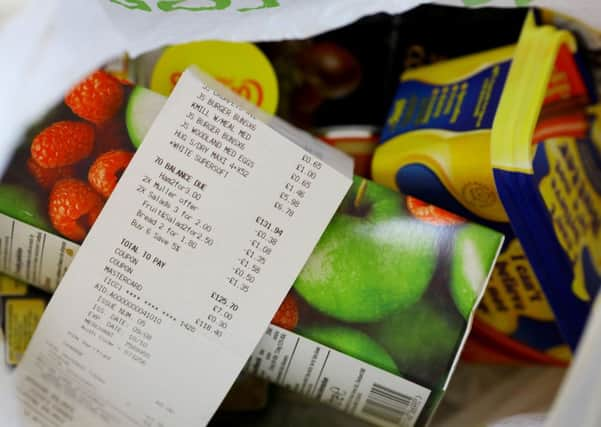We must work to ensure our food and drink industry continues to thrive


Businesses have to work exceptionally hard to succeed in these turbulent times. That hard work is not made easier by a constant stream of policy initiatives and regulations from Holyrood and Westminster. I want to take this chance to highlight a few of the issues businesses have to face.
Where to start? You will have noticed that the cost of your weekly shop has increased. Since the UK voted to leave the European Union markets have reacted, exchange rates have fluctuated, leading to the increased cost of ingredients. Many retail businesses and manufacturers need to import ingredients, materials or products into the UK from the EU or further afield. Companies can’t always afford to absorb these increased costs and may need to increase the price of the finished product.
Advertisement
Hide AdAdvertisement
Hide AdMany food and drink companies export their products. In fact, in 2017 food and drink exports from Scotland increased by 11 per cent to £6bn, which is great news. But exporting can be complicated with different rules and paperwork needed for different countries. And it can be very costly. For example if you ship some of our great primary produce like beef, lamb or pork you may need to pay hundreds of pounds for a vet certification for each shipment, whether you’re shipping one or 1,000. And there is of course ongoing uncertainty around the UK’s future trade agreements with the EU.


Our food and drink manufacturers are facing skills shortages – around 19,000 new job opportunities are forecast over the next 10 years and the majority of these will require highly skilled individuals. On top of that the national minimum wage has increased and some of our larger companies have to pay an apprenticeship levy which is a tax on businesses and in Scotland – businesses cannot even see a direct benefit of the levy coming straight back to them.
You will know that the Scottish Government has consulted on a draft Diet and Obesity Strategy. Our members take their role in tackling obesity very seriously, but they have real concerns about the impact of this strategy on their businesses. For example, the Scottish Government has suggested a number of proposed measures including restrictions on promotions and advertising and changes to labelling. Not only that but the UK government has put in place the Soft Drinks Industry Levy and are working on a sugars reduction drive, to reduce sugar content in products by 20 per cent by 2020. If there are different policies and regulations in Scotland to the rest of the UK it will make it more costly and difficult to do business here.
The Scottish Government is pressing ahead with scoping a deposit return system (DRS) for drinks containers in Scotland. And the Department for Environment, Food and Rural Affairs (DEFRA) recently announced they will consult on a potential DRS in England. Can you imagine having different systems in place in Scotland, England and other devolved nations?
Smaller businesses tell us that it is difficult to supply products to the public sector. Contracts to supply schools are written in such a way that don’t allow for fluctuations in raw material prices – yet there is a government drive to source local.
To ensure food is safe and consumers have trust in the foods they are eating, food and drink companies see the importance of factory audits. But despite the British Retail Consortium and SALSA accreditation schemes, these companies are often also audited by their customers individually, local authorities, regulators and if you export, other countries may also audit you. This is costly and time consuming.
We all need to work together to ensure our vital food and drink industry continues to thrive. But it is a trying time for all businesses, and at times it seems that Scotland’s food and drink success comes despite government policy and regulation. At FDF Scotland we represent our members to the Scottish Government and UK government, Food Standards Scotland and many others. We fight to ensure regulation is evidence based and that food and drink manufacturers have the best operating environment possible. To be even stronger, we need even more members to join us and support our work.
David Thomson, CEO, Food and Drink Federation (FDF) Scotland